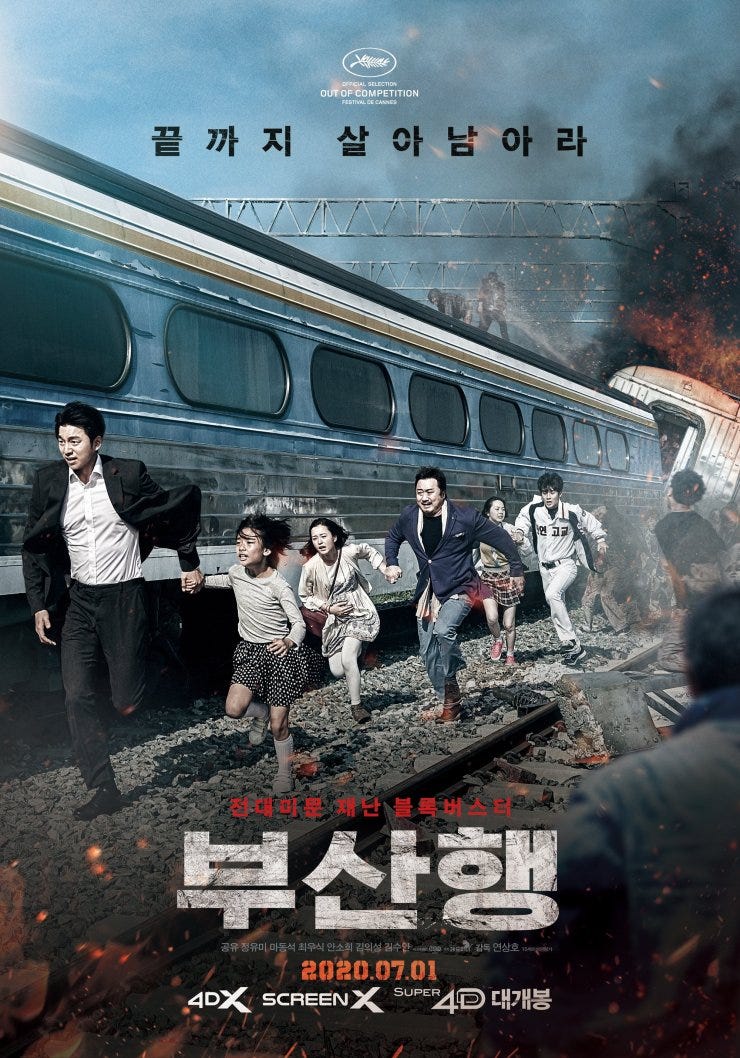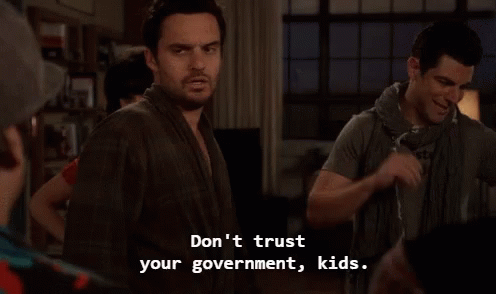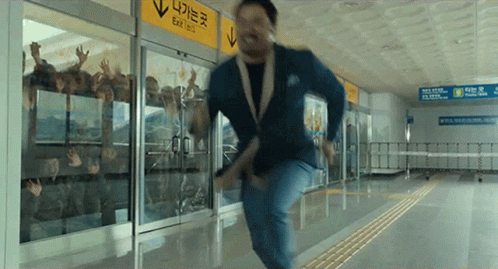Film: Train to Busan (2016), dir. Yeon Sang-Ho
Story: “Pestilence” (2020) by Jonathan Escoffery in Electric Lit
I’ll tell you now, Train to Busan hits differently mid-pandemic! Both these stories are about the deadly effects of late-stage capitalism, and they ask the question: what makes one life worth more than the next?
WATCH, READ, THEN VENTURE FORWARD for spoiler-ful analyses of these texts… if you dare!!!
Train to Busan (2016)
When I first saw Train to Busan several years ago, I thought that some of the messaging around governments abandoning and lying to citizens during a crisis was a little heavy handed. Like, really? “Stay calm and trust our government. Your safety is not in jeopardy” on the TV as zombies are actively attacking people one train car over? Oh, how naive I was! Having government and health officials downplay the danger and longterm effects of a deadly airborne virus while requiring HEPA filters and testing for their own events has woken me up to something that many people have known forever: our governments will not save us.
At its core, Train to Busan is about the need for collectivism and mutual aid in times of crisis and emergency. Our main protagonist, Seok-Woo, starts the film as a selfish, profit-driven businessman whose focus on work has estranged him from his young daughter, Su-An. When shit starts to hit the fan, zombie-wise, Seok-Woo’s impulse is to abandon or sacrifice all the other passengers to save himself and his daughter. When Su-An offers her seat to an elderly woman, he admonishes her gently, explaining that “at a time like this, you only watch out for yourself.” He slams the door in the face of an expecting couple, Sang-Hwa and Sung-Gyeong, when fleeing a ravenous hoard of zombies, and he tries to use his influence as an executive to escape a quarantine zone.
As the movie goes on, however, and Seok-Woo and Su-An are saved numerous times by their fellow passengers, he learns the value of collectivism, and he teams up with Sang-Hwa and young baseball player Min Yong-guk to protect the rest of the train.
Sang-Hwa also teaches him about how to be a good dad. Cause this movie is also about BEING A DAD, and the importance and sadness of MALE SACRIFICE!
[Sidebar: It drove me insane how often Seok-Woo leaves his kid alone on this zombie train to like, make a call!!! HOLD HER HAND! DO NOT LET HER OUT OF YOUR SIGHT!!! C’mon!!!]
Though some of the kid/ dad scenes are a bit saccharine, they still really hit me hard, especially watching it next to a six-year-old sleeping a wagon who, just earlier that day, had clung to me crying that she didn’t want me to leave. I wasn’t about to sacrifice myself because my company had caused a terrible plague and I’d been bitten by a zombie right after I’d finally learned how to be a good dad, BUT STILL!
One final note: if the messages about mutual aid/ bad governments/ dads aren’t enough, I have to emphasize that this a a great, scary zombie movie. The zombies are FAST, which is the worst thing a zombie can be, and they move like an uncanny swarm. So if you’re just here for the scares, this film delivers on that level, too! The director, Yeon Sang-ho, has a really interesting interview about blending Western zombie tropes with Korean movie sensibilities, which includes a focus on realism, emphasizing things like “bone-breaking choreography” over heavy makeup.
“Pestilence” by Jonathan Escoffery
I paired Train to Busan with “Pestilence” for a few reasons. Some are surface level: the gorey description of a fish ramming into glass until its face is gristle evoked the image of zombies smashing themselves into the glass of train cars and train stations having lost any drive for physical self-preservation. Also, like Train to Busan, this story raises questions about what it means to be a man, and what it means to be a father, though “Pestilence” is much more about male cruelty than male sacrifice. Most importantly, though, both texts ask the question, “What makes one life worth more than the next?” Whom do we sacrifice, and whom do we save? Though an immigrant family in the Florida swampland is far removed from a wealthy corporate dad in Korea, both stories force their protagonists to wrestle with these questions outside of the abstract as they are faced with very different crises.
Read More!
“Yeon Sang-ho Talks Korean Zombie Hit Train to Busan” (2016) by Jean Noh for Screen Daily












